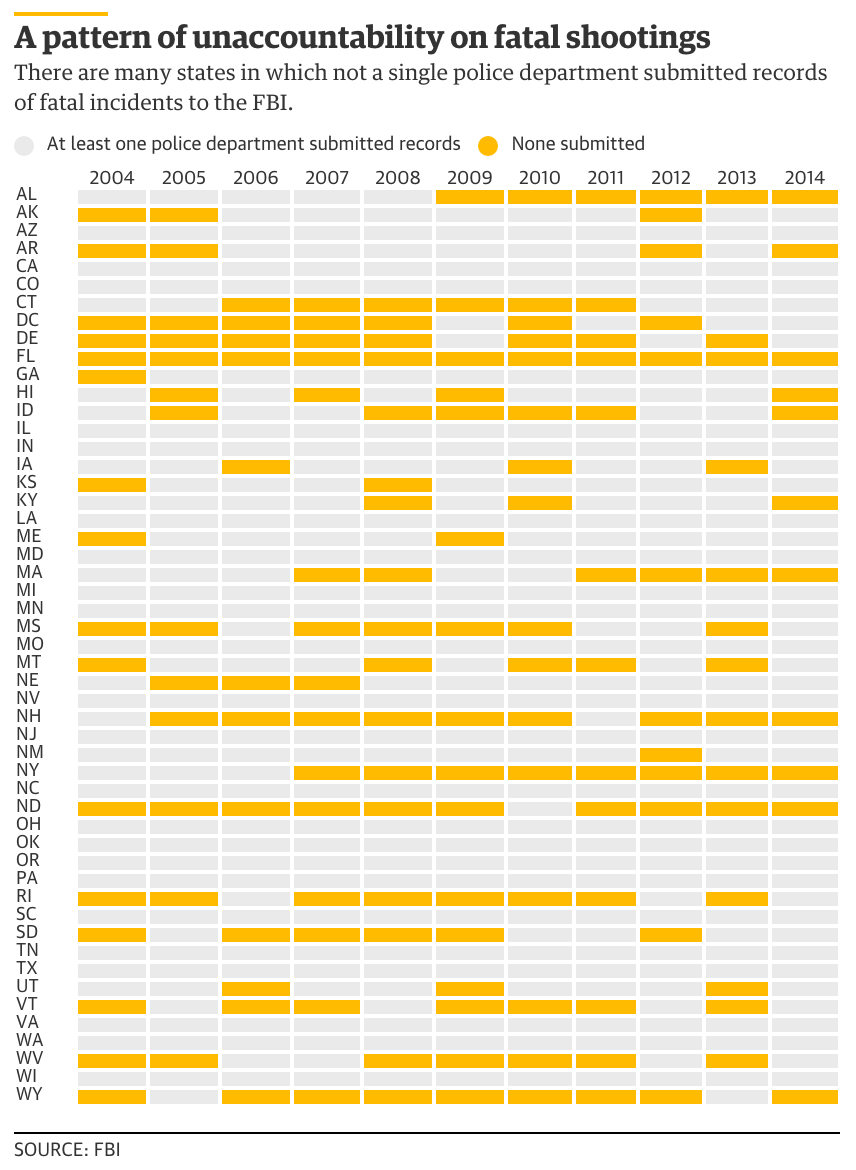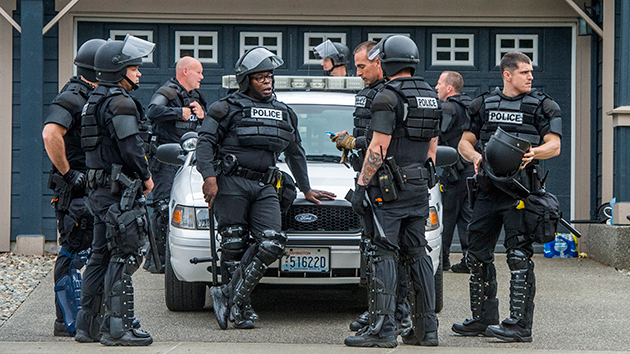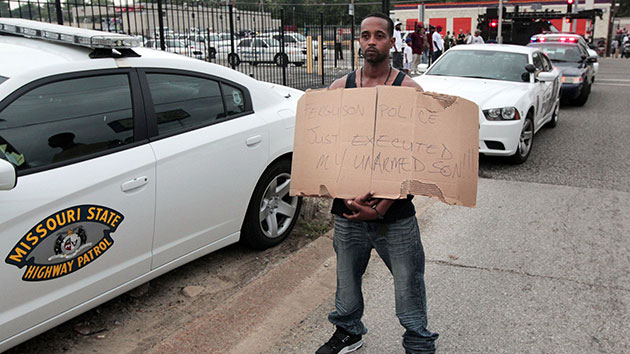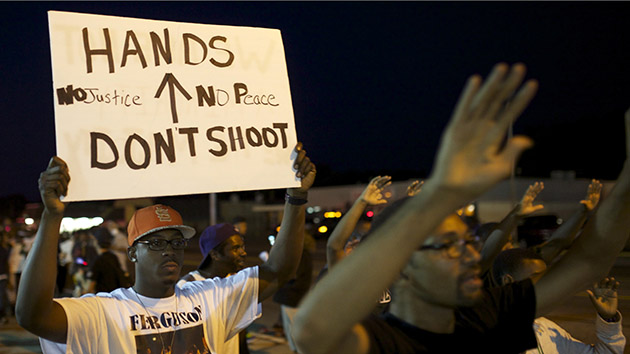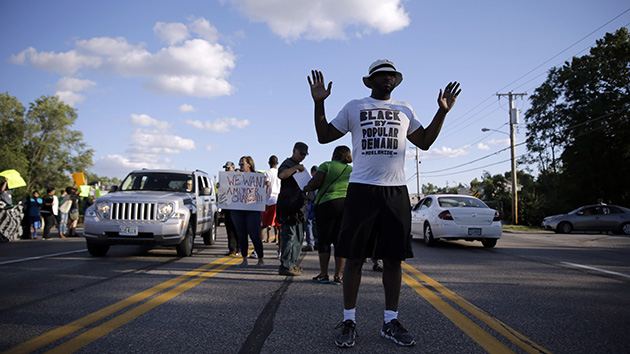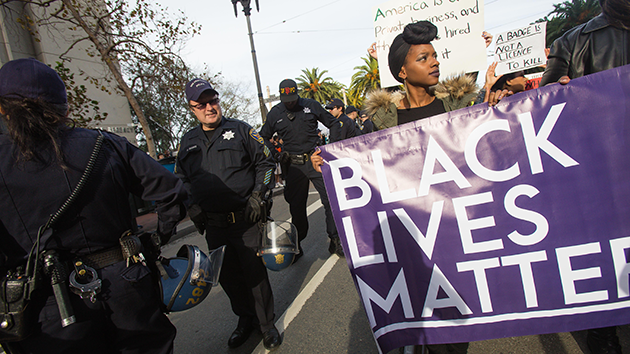
Protesters march in San Francisco in December 2014.Nick Otto/ZUMA
A new investigation from the Guardian gives a detailed look at the deep flaws in the FBI’s database on fatal police shootings. The inadequacy of the federal data, which is built from information voluntarily reported by police departments, has come into view as the Guardian and the Washington Post have tracked officer-involved killings in 2015. FBI Director James Comey recently called the federal data “embarrassing and ridiculous,” and US Attorney General Loretta Lynch has announced a new program aimed at better tracking civilian deaths at the hands of police.
The Guardian examined the FBI’s justifiable homicide data for the decade spanning from 2004 to 2014 and found:
- In 2014, only 244—or 1.2 percent—of the nation’s estimated 18,000 law enforcement agencies reported a fatal shooting by their officers.
- Several high-profile deaths, including those of Eric Garner in New York, and Tamir Rice and John Crawford in Ohio, were not included in the FBI’s count, as the police agencies involved did not submit their data for those years or report those incidents to the FBI. The NYPD, for example, did not submit data for any year during this period except for one, in 2006. Still the FBI’s count did not match up with the NYPD’s own data from that year, which the NYPD publishes in a separate annual report.
- The FBI lists 32 ways of classifying the incidents based on the circumstances—but only one denotes killing by a police officer: “felon killed by police.” There is no category for cases where an officer killed someone who was not a felon. (See Mother Jones’ previous reporting on the FBI’s classification of justifiable homicides.)
- Some police departments reported unjustified killings by cops as killings between civilians. Other deaths in which officers were charged or convicted, such as that of Oscar Grant, Rekia Boyd, Malissa Williams, and Timothy Russell, did not show up at all in the FBI database.
- A rise in the number of police shootings corresponded with a rise in agencies reporting their figures, obscuring any potential trends over the decade reviewed.
The Guardian included a chart showing the lack of reporting annually by states on fatal police shootings. Two of the nation’s most populous states, Florida and New York, barely reported any data at all:
